Earth
Sign up for our newsletter
We summarize the week's scientific breakthroughs every Thursday.
-
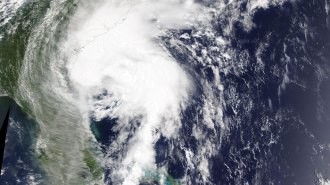 Earth
EarthPredictions for the 2020 Atlantic hurricane season just got worse
Wind patterns and abnormally warm seawater are conspiring to create especially hurricane-friendly conditions in the Atlantic.
-
 Climate
ClimateEmissions dropped during the COVID-19 pandemic. The climate impact won’t last
New estimates suggest coronavirus shutdowns cut global carbon dioxide emissions from fossil fuels by nearly 30 percent, on average.
-
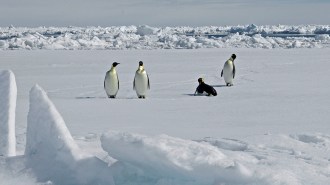 Animals
AnimalsPenguin poop spotted from space ups the tally of emperor penguin colonies
High-res satellite images reveal eight new breeding sites for the world’s largest penguins on Antarctica, including the first reported ones offshore.
-
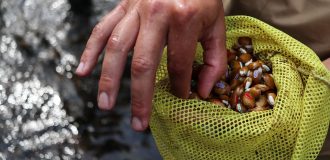 Ecosystems
EcosystemsTo save Appalachia’s endangered mussels, scientists hatched a bold plan
Biologists have just begun to learn whether their bold plan worked to save the golden riffleshell, a freshwater mussel teetering on the brink of extinction.
-
 Health & Medicine
Health & MedicineMany U.S. neighborhoods with the worst air 40 years ago remain the most polluted
Air pollution has declined in the United States, but marginalized communities are still disproportionately affected despite the improvement.
-
 Oceans
OceansThese ancient seafloor microbes woke up after over 100 million years
Scientists discover that microbes that had lain dormant in the seafloor for millions of years can revive and multiply.
-
 Earth
EarthCOVID-19 lockdowns dramatically reduced seismic noise from humans
Human-caused seismic activity was reduced by as much as 50 percent around the globe during lockdowns as a result of the coronavirus pandemic.
-
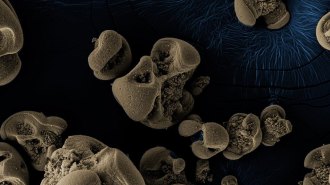 Microbes
MicrobesScientists stumbled across the first known manganese-fueled bacteria
A jar left soaking in an office sink helped scientists answer a century-old question of whether bacteria can use manganese for energy.
-
 Physics
PhysicsA giant underground motion sensor in Germany tracks Earth’s wobbles
A giant underground gyroscope array has taken its first measurements of how the world goes ’round.
-
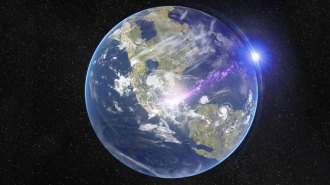 Earth
EarthAn asteroid impact, not volcanism, may have made Earth unlivable for dinosaurs
New simulations add to growing evidence that an asteroid strike, rather than the Deccan Traps eruptions, caused the end-Cretaceous extinction.
By Megan Sever -
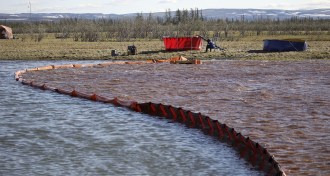 Climate
ClimateClimate change made Siberia’s heat wave at least 600 times more likely
Siberia’s six-month heat wave during the first half of 2020 would not have happened without human-caused climate change, researchers find.
-
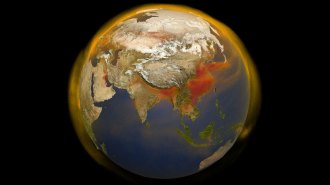 Earth
EarthAgriculture and fossil fuels are driving record-high methane emissions
Releases of the heat-trapping gas methane from human activities have ramped up in the 21st century, especially in Africa and Asia.